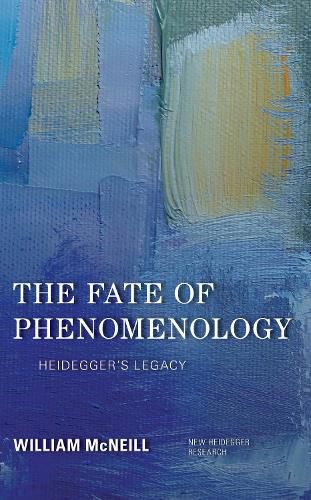Readings Newsletter
Become a Readings Member to make your shopping experience even easier.
Sign in or sign up for free!
You’re not far away from qualifying for FREE standard shipping within Australia
You’ve qualified for FREE standard shipping within Australia
The cart is loading…






It can be easily argued that the radical nature and challenge of Heidegger’s thinking is grounded in his early embrace of the phenomenological method as providing an access to concrete lived experience (or ‘factical life’, as he calls it) beyond the imposition of theoretical constructs such as ‘subject’ and ‘object’, ‘mind’ and ‘body’. Yet shortly after the publication of his ground-breaking work Being and Time, Heidegger appears to abandon phenomenology as the method of philosophy. Why? Heidegger is conspicuously quiet on this issue. Here William McNeill examines the question of the fate of phenomenology in Heidegger’s thinking, and its transformation into a ‘thinking of being’ that regards its task as that of ‘letting be’. The relation between phenomenology and ‘letting be’, McNeill argues, is by no means a straightforward one. It poses the question of whether, and to what extent, Heidegger’s thought of his middle and late periods still needs phenomenology in order to accomplish its task-and if so, what kind of phenomenology. What becomes of phenomenology in the course of Heidegger’s thinking?
$9.00 standard shipping within Australia
FREE standard shipping within Australia for orders over $100.00
Express & International shipping calculated at checkout
It can be easily argued that the radical nature and challenge of Heidegger’s thinking is grounded in his early embrace of the phenomenological method as providing an access to concrete lived experience (or ‘factical life’, as he calls it) beyond the imposition of theoretical constructs such as ‘subject’ and ‘object’, ‘mind’ and ‘body’. Yet shortly after the publication of his ground-breaking work Being and Time, Heidegger appears to abandon phenomenology as the method of philosophy. Why? Heidegger is conspicuously quiet on this issue. Here William McNeill examines the question of the fate of phenomenology in Heidegger’s thinking, and its transformation into a ‘thinking of being’ that regards its task as that of ‘letting be’. The relation between phenomenology and ‘letting be’, McNeill argues, is by no means a straightforward one. It poses the question of whether, and to what extent, Heidegger’s thought of his middle and late periods still needs phenomenology in order to accomplish its task-and if so, what kind of phenomenology. What becomes of phenomenology in the course of Heidegger’s thinking?